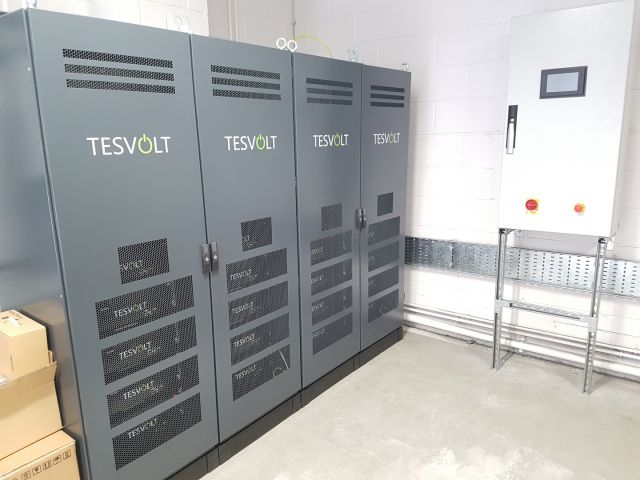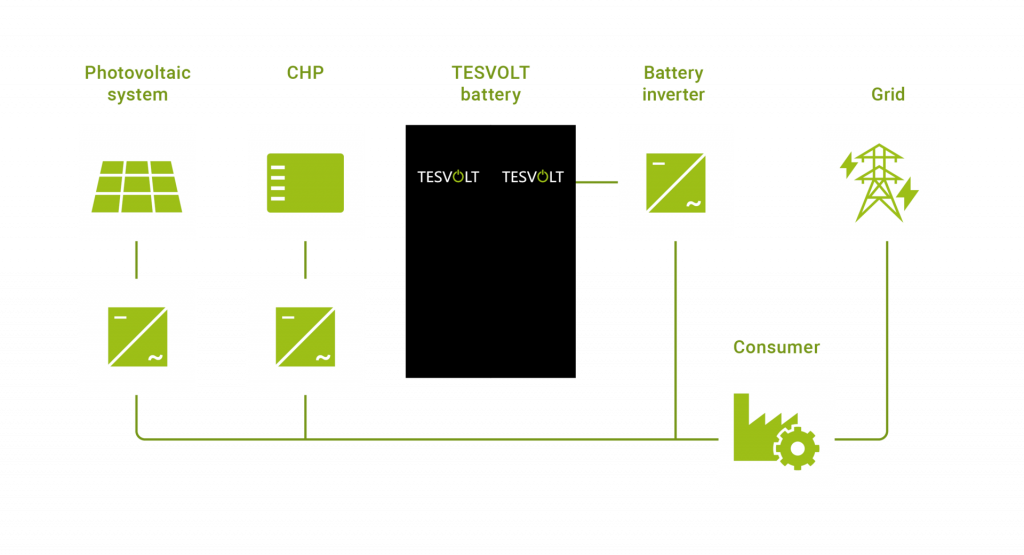Like most educational institutions, Wirral Metropolitan College mainly uses energy for heating, hot water provision, and lighting. The college is open 40 weeks ayear from 7 am to 11 pm, but electricity consumption fluctuates greatly over the course of each term.
Consumption is lower in the summer not only because of the outside temperatures, but also because the college is used much less during the holidays, meaning that electricity and heat demand is much lower than in the cold winter months.
To cut heating and electricity costs, the college installed two gaspowered combined heat and power plants (CHP) each rated 65 kW. One of the plants providesheat and electricity around the clock, while the other only runs in winter to meet the increased heating and electricity needs during the day when the students are inclass.
Since the amount of electricity and heat generated during a day does not always meet demand, storage solutions were needed to absorb excess energy and release it again later, aligning consumption and supply more closely with one another. In addition to a thermal phase-change storage unit for excess heat, the college was also looking for a reliable electric battery storage system.
Requirements for an electrical storage solution were:
- Powerful storage system with high depth of discharge and high number of guaranteed cycles to ensure a sustainable and long-lasting investment
- Easy installation and seamless interaction with the existing setup


 German
German


 by
by